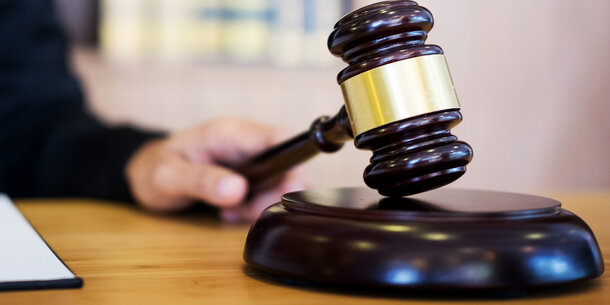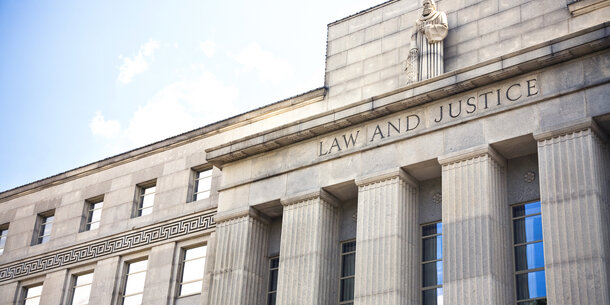Federal Courts
Chief Justice Roberts Rebukes Senator Schumer for Remarks Targeting Supreme Court Justices
On March 4, Senate Minority Leader Charles Schumer (D-NY) received backlash for his remarks targeting Justices Brett Kavanaugh and Neil Gorsuch when speaking at a pro-choice rally in front of the U.S. Supreme Court.
Schumer’s remarks were issued as the justices heard arguments over June Medical Services LLC v. Russo, the Court’s first major abortion case since Kavanaugh and Gorsuch were appointed. He used language that insinuated retaliation if they ruled against abortion rights. Schumer later apologized for his comments.
Last month, President Trump also accused Justices Sonia Sotomayor and Ruth Bader Ginsburg of bias, tweeting they “[b]oth should recuse themselves on all Trump, or Trump related, matters!”
Chief Justice John Roberts issued a rare public rebuke in response to only Schumer, saying, “Justices know that criticisms comes with the territory, but threatening statements of this sort from the highest levels of government are not only inappropriate, they are dangerous.”
According to the Brennan Center’s Janna Adelstein and Alicia Bannon, “As the leader of the federal courts, it’s appropriate for the chief justice to play a visible role in defending its integrity. But Roberts’ [] selective response risks exacerbating public perceptions of partisan bias on the Supreme Court.”
U.S. Courts Implementing Procedures in Response to Coronavirus
Courts across the country are implementing emergency strategies in response to concerns about the spread of coronavirus (COVID-19).
Last month, the Administrative Office of the U.S. Courts issued a memo recommending federal courts prepare for the potential use of “social distancing measures,” such as telecommuting and the expansion of more flexible working hours, according to Bloomberg Law. Several federal courts, including the Southern District of New York, the U.S. Court of Appeals for the Ninth Circuit, and the Western District of Washington, have since issued a range of orders in response to COVID-19. On March 12, the U.S. Supreme Court announced it will be closed to the public until further notice, but the building will remain open for business.
At the state level, the Boston Herald reports that judges in Massachusetts are being encouraged to reduce or cancel jury days as part of the state’s efforts to reduce the impact of CVOID-19. Other states, including Vermont, Connecticut, and North Carolina, are also considering, or have begun implementing, precautionary measures to address CVOID-19 in their courts.
Senate Democrats Seeking Information on Former Federalist Society Leader’s Influence on Federal Judicial Nominations
On March 4, six Senate Democrats sent letters to former Federalist Society vice president Leonard Leo, the Federalist Society, the Justice Department, and the White House seeking documents regarding Leo’s role as an advisor to the Trump administration on federal judicial nominations.
In their letter, the senators expressed concern over possible conflicts of interest related to Leo’s leading role over judicial selection and nominations when he has a financial interest related to that work, noting that “Mr. Leo’s network collected more than $250 million in donations, the sources of which remain unknown and which likely have interests before the federal courts” between 2014 and 2017 alone. The senators also noted that Leo’s role has “raised questions regarding his potential status as a federal employee and compliance with accompanying laws and regulations."
According to Bloomberg Law, Leo, who also served as an advisor on judicial nominations during the George W. Bush administration, recently left the Federalist Society to start a new group, CRC Advisors.
State Courts
Illinois State Supreme Court Race Raises Questions About Judicial Diversity
On March 17, seven candidates will compete to fill the seat of former Justice Charles E. Freeman on the Illinois Supreme Court.
Freeman, who served on the bench for 27 years, was the first Black justice and the only person of color to ever sit on the state’s Supreme Court until the appointment of his successor, Justice P. Scott Neville. Neville, who is also Black, was appointed to the court two years ago to complete Freeman’s term and now faces six challengers, including five appellate judges and one practicing attorney. Of Neville’s challengers, two are Black, one is Latino, and three are white.
Depending on the outcome of the election, Illinois could join the 23 states across the country that currently have an all-white supreme court bench. Neville, who is the state’s only sitting justice of color, has spoken up about the importance of judicial diversity. Other candidates, including Appellate Court Judge Cynthia Cobbs and Attorney Daniel Epstein, have also spoken about the need for judicial diversity.

